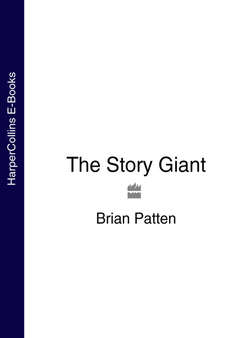Читать книгу The Story Giant - Brian Patten - Страница 10
THE TRAMP AND THE OUTCOME OF WAR
ОглавлениеA TRAMP HAD BEEN WANDERING LOST FOR WEEKS THROUGH a strange country that had been devastated by war. The war had been over for many years, but it had been so terrible that neither the land nor the population had recovered. Crops had been burned, once-fresh streams had been polluted, and the poor people had fled their homes taking everything they could carry with them. There was nothing for the tramp to eat or drink except the grubs he found under stones and the dew he licked from the grass at dawn. He was going mad with thirst and hunger and knew he would soon die unless he found food.
He had no idea why there had been a war. It was something he brooded over simply to help keep his mind off hunger. Every time his stomach rumbled, every time his lips cracked, he tried to think instead about the reason behind the war.
Wandering beside a small wood one day he heard a noise that disturbed him. Frightened, he crouched in the tangled roots of a giant oak tree and listened. Thump-a-rump-rump, thump-a-rump-rump.
The sound was repeated over and over again, and seemed to be coming from the far side of the wood.
The tramp edged his way slowly and carefully through the wood to investigate the noise. He was amazed at what he found on the other side.
The sound was being made by the seed heads of poppies being blown against the skin of an old war-drum. He had discovered the very place where the last of the country’s great battles had been fought. And on this battlefield, among the worm-eaten butts of rifles and the skeletons of soldiers, was a wonderful sight.
There were apple trees and plum trees, pear trees and cherry trees, wild asparagus, and all manner of strange fruit and vegetables.
When the two armies had fallen, the fruit and other foods they’d carried with them into war had rotted into the earth. The soil had been nourished by the decomposing bodies of the dead, and in time an orchard had sprung up among the ragged skeletons.
The tramp sat on the old war-drum and began eating a delicious plum.
‘I may never discover the reason for the war,’ he thought to himself, ‘but the outcome is obvious. The end result of all this carnage and misery has been to feed a single tramp.’
The Giant was delighted that Rani, the most timid of the children, had suddenly blossomed. He knew the story already – it would have been too much to hope that his unknown tale could turn up so quickly.
He remembered back to when he’d first heard it, when the world had seemed almost new to him. He’d lived elsewhere then. In Kashmir, in a remote region of snow-capped mountains near a tribe that – because in those days he had not been so expert at concealing himself – had spotted him from time to time. They’d called him the Yeti, and thought him still there.
He had heard a very different version of the story back in those days. He tried to remember exactly how long ago it had been, alarmed at how moth-eaten his memory was becoming.
Had it been two – or even three thousand years ago? Whichever, the story had existed before then, even before written language as the world now knew it had been invented. His second memory of the story was seeing a Himalayan priest copying it down from a local tribesman. And how long ago had that been? Two or three hundred years before the birth of Christ? About that. Copying it had been a laborious task for the priest. The poor peasant had had a stutter.
And had it been only eleven centuries ago that he himself had passed the story on to a travelling scholar, some of whose texts still existed in Islamic museums to this day? The man had written in Sanskrit, an ancient language the Giant loved. And now here was the same story again, tripping lightly off a child’s tongue, mangled, simplified, but recognizable all the same.
Rani telling her story re-affirmed for him his belief that the Castle he had created was indeed a special place. If children like Rani were not able to tell their stories, how would any stories survive? Without re-telling they would stagnate and die, or be entombed forever in a forgotten language. All things perish if they are left unnourished, he thought: stories without retelling, humans without love.
His delight in hearing the story again lifted his spirits, and he began to remember some of his own favourite tales. There were four in particular that shone in his imagination. He cleared his throat.
‘I’ve four small jewels to share with you,’ he announced. He closed his eyes, and resting his head back in the chair he addressed the room.
